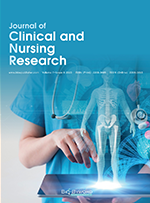Abstract
Objective: To investigate the intestinal flora in elderly patients with type 2 diabetes mellitus with early nephropathy. Methods: 43 elderly patients with type 2 diabetes mellitus with early nephropathy (diabetic nephropathy group) and 51 elderly patients with type 2 diabetes mellitus (type 2 diabetes mellitus group) admitted to our hospital from January 2021 to October 2022 were retrospectively analyzed, with 39 healthy people who underwent a physical examination in our hospital during the same period as the control group. The fecal specimens of the three groups were collected, and the 16S rDNAs of bacteria in the fecal samples were extracted, amplified, and sequenced for intestinal flora operational taxonomic unit (OTU) classification and Alpha diversity analysis. Results: (1) Intestinal flora OTUs: there were 545 intestinal flora OTUs unique to the control group, 424 intestinal flora OTUs unique to diabetic nephropathy, and 321 intestinal flora OTUs unique to the type 2 diabetes group. There were 403 intestinal flora OTUs common to the control group and diabetic nephropathy group, 256 intestinal flora OTUs common to the control group and type 2 diabetes group, and 298 intestinal flora OTUs common to the type 2 diabetes group and diabetic nephropathy group. 235 intestinal flora OTUs were common to all 3 groups of subjects. (2) Alpha diversity: The statistical analysis indicated that there was a statistically significant difference (P < 0.05) in the Alpha diversity of intestinal flora, as assessed by the Ace index and Simpson’s index, among the three subject groups. However, no statistical significance (P > 0.05) was observed when comparing the Chao 1 index and Shannon index. Further observation of the Ace index and Simpson index in the three groups revealed that both the diabetic nephropathy group and the type 2 diabetes mellitus group had lower values than the control group. Conclusion: The diversity of intestinal flora decreases in elderly patients with type 2 diabetes mellitus with early nephropathy.
References
Zhou Q, Yang S, 2023, Analysis of The Health Status of the Elderly Population in China Under the Background of Actively Coping with The Aging Population Policy: Based on the Comparative Analysis of the Sixth and Seventh National Population Censuses. Population and Health, 2023(07): 49–53.
Yang X, Yuan L, Ye Z, et al., 2022, Interpretation of the Comprehensive Health Assessment in the Chinese Clinical Guidelines for the Prevention and Control of Type 2 Diabetes Mellitus in the Elderly (2022 Edition). Practical Geriatrics, 36(11): 1180–1184.
Wang F, Wang W, 2022, Interpretation of the Chinese Clinical Guidelines for the Prevention and Control of Type 2 Diabetes Mellitus in the Elderly (2022 Edition). Journal of Hebei Medical University, 43(12): 1365–1370.
Qiu X, 2022, The Significance of Urine Protein Test in the Diagnosis of Early Diabetic Nephropathy. Primary Medical Forum, 26(17): 127–129.
Dabke K, Hendrick G, Devkota S, 2019, The Gut Microbiome and Metabolic Syndrome. J Clin Invest, 129(10): 4050–4057.
Mejers B, Jouret F, Evenepoel P, 2018, Linking Gut Microbiota to Cardiovascular Disease and Hypertension: Lessons From Chronic Kidney Disease. Pharmacol Res. 133: 101–107.
Sun H, 2023, Analysis of Intestinal Flora and Inflammatory Factors and T-cell Subsets in Pregnant Women with Gestational Diabetes Mellitus. Journal of Practical Examiner, 15(01): 22–25.
Jiang J, Lu P, 2023, Progress in the Study of the Role of Intestinal Flora in Ocular Diseases. International Journal of Ophthalmology, 23(07): 1153–1157.
Peng C, Chen J, Chai K, et al., 2023, Research Progress of Intestinal Flora in Tumor Application. Journal of Practical Oncology, 38(03): 290–293.
Wu Z, Wang Q, Qin X, et al., 2019, Research Progress of Intestinal Flora and its Metabolites in the Treatment of Depression with Traditional Chinese Medicine. Chinese Herbal Medicine, 54(14): 4713–4721.
Lei X, Dong L, Li J, et al., 2019, Relationship Between Intestinal Flora and Alzheimer’s Disease at Different Ages. Chemistry of Life, 43(06): 872–880.
Chu H, Li L, 2021, Diversity of Intestinal Flora in Elderly Patients with Type 2 Diabetes Mellitus with Early Nephropathy. Chinese Journal of Microecology, 33(08): 916–919.
Zheng X, Cao Y, 2023, Effect of Intestinal Flora on Renal Function Impairment and Short-Term Progression of Albuminuria in Patients with Type 2 Diabetic Nephropathy. Chinese Journal of Microecology, 35(04): 426–430.
Tang W, Liu N, Fan B, 2020, Effect of Probiotic Supplementation on the Risk of Disease Progression in Elderly Patients with Diabetes in Yukon. Chinese Journal of Microecology, 2020(05): 570–574.
Zou T, Peng T, 2022, Research Progress of Exploring Traditional Chinese Medicine Against Diabetic Nephropathy Based on Intestinal Flora. Journal of Northwest University for Nationalities (Natural Science Edition), 43(03): 58–62.
